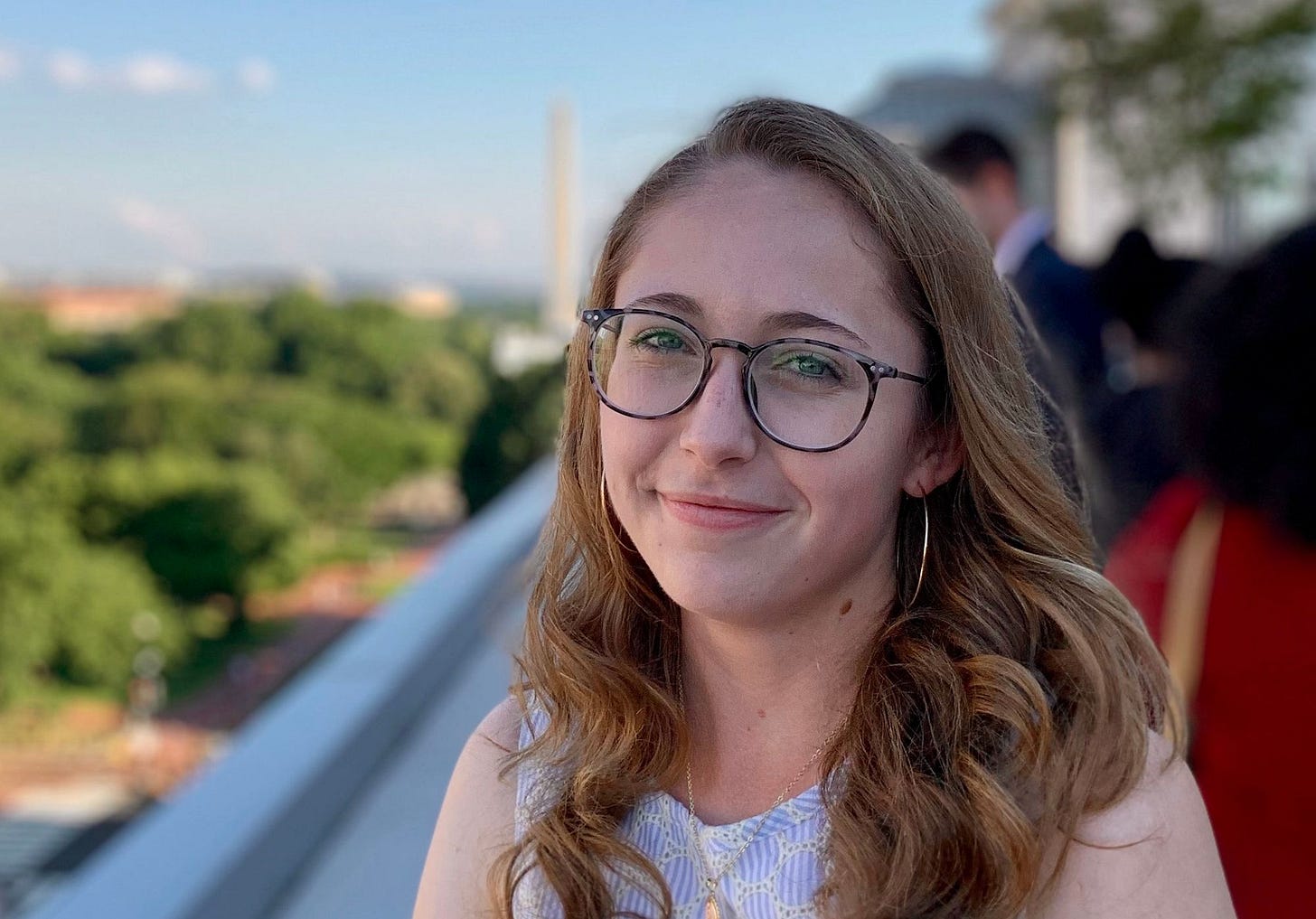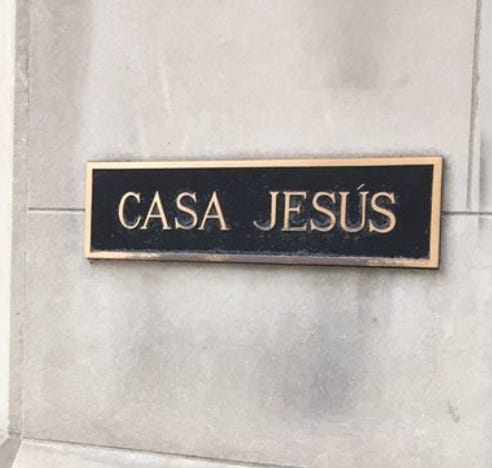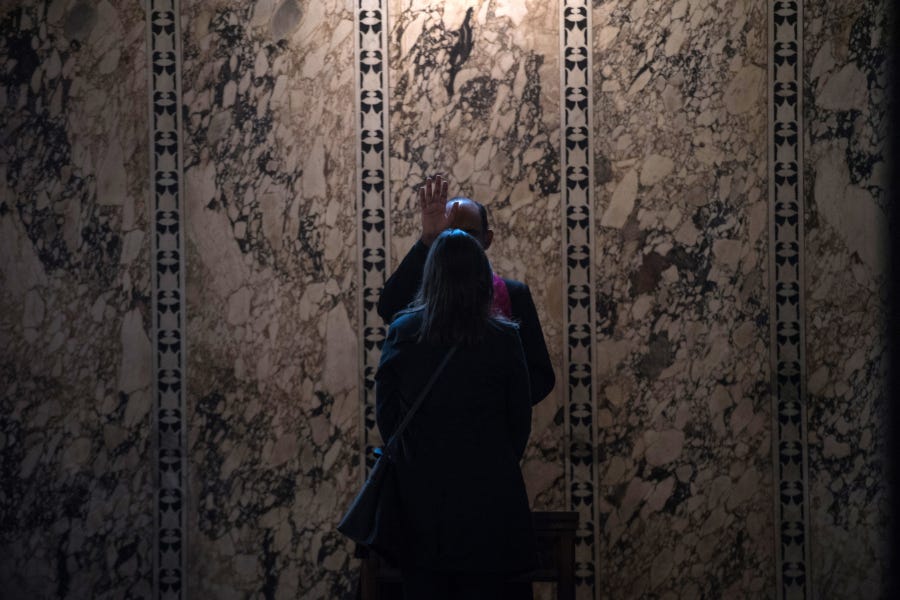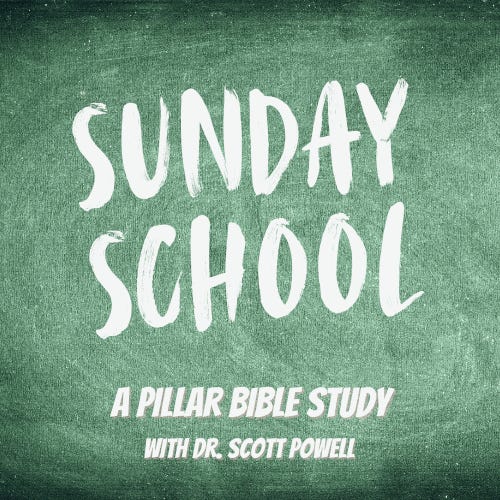
The University of Notre Dame is known as one of the premier Catholic universities in the United States.
Dedicated to Our Lady, the university boasts an active campus ministry program, more than 50 chapels on campus, and some 160 Masses celebrated daily.
But Notre Dame is not without its share of controversy. From awarding President Barack Obama an honorary degree in 2009 to announcing in 2018 that it would cover some contraceptives in its insurance plan, decisions by the administration have sometimes been met with criticism in parts of the Catholic community.
In the months following the overturn of Roe v. Wade, Merlot Fogarty, president of Notre Dame Right to Life, has found herself wishing the university would do more to promote a culture of life and maintain its position as a leader on pro-life issues.
Fogarty, a junior at Notre Dame, is studying theology, political science, and constitutional studies. She hopes to work in the pro-life movement and dedicate her life to promoting the dignity of all human persons.
Fogarty spoke with Charles Camosy this week about her work at Notre Dame Right to Life, the challenges she sees on campus, and her hopes for the university to be a leader in the pro-life movement.
Can you tell us a bit of your story that lands you in the position of being president of Notre Dame Right to Life?
Especially in the Catholic world, I think the reality of broken families is often ignored. Missing one or both parents as a child can cause a lot of damage to the way one thinks about their life and purpose. I grew up in a broken family. I come from deep trauma and heartbreak. I know what it is to think that your life doesn’t have value.
In college, my search for healing led me to Christ, who motivates me to fight so hard for those who cannot stand up for the value of their lives. Children in the womb are discarded simply because their parents believe them to be disposable or a burden. This wasn’t something that I recognized when I chose to come to Notre Dame, but I know God put me here for a reason.
When I started college I quickly realized just how deeply abortion has affected each and every aspect of our culture. In the face of abortion rights signs on dorm room doors and vandalism of pregnancy resources, to a protest against the nomination of Amy Coney Barrett, I wanted to join those voices on campus who were talking about abortion and standing up for the truth. As I began to be more vocal about being pro-life, my friends from high school unfollowed me on social media and Notre Dame students I had never met took it upon themselves to ‘expose’ me as a pro-life conservative. This culminated with a 4 a.m. knock on my bedroom door on the night of the 2020 presidential election. My peers had torn off the ‘pro-life is pro-woman’ sign on my door and ripped it to pieces, replacing it with a Biden 2020 sign, and were attempting to confront me about my pro-life convictions.
I was astounded with the hatred students had merely for my visibly upholding what the Catholic Church taught about the dignity of life and the grave sin of abortion. The next morning I walked into my advisor's office and switched my major to theology, and soon after applied for a fellowship with Students for Life of America. I got the fellowship, and the summer between my freshman and sophomore year, SFLA flew me to D.C. for their annual National Leadership Collective. I learned about both the political and moral sides of the abortion debate, met wonderful people who were on fire with love for the Lord, and realized that the battle against abortion was something that I needed to dedicate my life to fighting.
The next year, Francie Shaft, then-president of Notre Dame Right to Life, taught me what it truly meant to dedicate your life to the fight. Through her friendship and guidance, I learned how to be a leader, ground yourself in the truth, and never let anyone’s opinions of you stop you from speaking out against the destruction of life and fighting for the God-given dignity of women and children.
A lot of us have been thinking about how Dobbs would be received on Catholic college and university campuses. In fact, I was part of a working group this summer that was designed to advise Catholic and Jesuit university presidents about precisely this issue. Now that we are about half-way through the fall semester, how has it gone at Notre Dame?
Let me start off with this: I love Notre Dame. I am so grateful to attend a Catholic university that is still formally dedicated to protecting life. Notre Dame will not offer most forms of contraception at its health center, does not formally recognize pro-choice student groups, funds the largest pro-life student club in the nation, and sends the University’s president to the March for Life with us every year—very few universities can say the same.
However, the administrative response to Dobbs was less than perfect and, as a student, I have been disappointed in the lack of action that Notre Dame has taken since the abortion ban has gone into effect in Indiana. The battle for women’s hearts and against chemical abortion is just beginning, and after offering a timid statement on the reversal of Roe vs. Wade, Notre Dame currently has a professor openly promising to help students access abortion, pro-abortion articles being published and promoted by the University Press, radio silence about South Bend’s unlicensed-yet-still-operating local abortion clinic, and hall staff receiving nothing more than an optional 10-minute introduction to ND’s pregnancy resources. In addition, the word ‘pro-life’ has been banned from use in Notre Dame’s student paper, abortion-pill access stickers are showing up in campus bathrooms, and Notre Dame has not spent a dime on updated resource displays for bathrooms and hall staff on campus.
I respect Notre Dame abundantly for her continued formal commitment to life, but I do not think she is doing enough to affirm a culture of life within the student body and faculty. Supporting a culture of life on campus means more than empty statements and “calls for dialogue.” For a campus purporting to lead the Catholic intellectual sphere in its commitment to life, empowering women and children in our post-Dobbs culture requires a revitalization of university protocol and policy, something I hope to use my role to effect and implement.
How has Notre Dame Right to Life navigated this environment? What sorts of things are you trying to address?
Notre Dame Right to Life released a statement the day of the Dobbs decision affirming our support and uplifting those who worked tirelessly for the pro-life movement before us. While the reversal of Roe is cause to celebrate, it is merely the first step in a long battle to fight the culture of death and regain an understanding of the joy and dignity of life. Our role now is working to create and strengthen the networks and conditions of support and love necessary to build a society where abortion is not just illegal, but unnecessary. No woman should ever feel that she has to choose between her child and her future. No life is a mistake; every life is worth living. I think that’s the message we want to get to people, because that’s the root of what our culture misunderstands.
This year so far, we at Right to Life have hosted Alexandra Desanctis for our Abortion Harms Our Politics and Disadvantages Women event, brought in a counselor from the local Women’s Care Center to speak on Serving One Another Humbly With Love, hosted a talk with Fr. Bill Miscamble on Fatherlessness in the Wake of the Sexual Revolution, presented Roe Changed the Culture: Was Dobbs the Antidote? with Professor Hadley Arkes, tabled with the Students for Life display, Abortion is not a Right, it’s Wrong, and hosted a week of programming with the theme Be Not Afraid: You Are Not Alone.
Right to Life is committed to service for women, children, and families in the wake of Roe, affirming our identity as a Catholic club through spirituality and prayer events and educating those on both sides of the spectrum why it is we believe abortion is a grave moral wrong that must be outlawed.
Do you think there's room for interesting conversations to be had across differences in an academic context?
I think that because abortion is considered a conservative issue, it is too often excluded in our conversations on race and disabilities. For example, a recent event at Notre Dame, Post-Roe America: Making Intersectional Feminist Sense of Abortion Bans, lacked any representation of the anti-abortion side, taking abortion as an indisputable necessity for women at Notre Dame and claiming that “abortion criminalization started as a white supremacy movement.” Abortion clinics are strategically placed in low-income black communities as well as within convenient distances to college campuses. The abortion industry is rooted in eugenics. This is undeniable. It targets the very people the pro-choice movement purports to protect—minorities, the youth, and those with disabilities. Recent studies have proven that many prenatal diagnoses are wrong over 80% of the time, meaning thousands of healthy children have been killed because they might have had a disability—that is eugenic at its core.
Furthermore, the very nature of abortion taking the lives of the most vulnerable is unmistakably ableist—just because a preborn human is not able to feed itself, walk, speak, or comprehend complex thoughts does not make her any less valuable. There are plenty of born human beings who are also unable to do these things and are dependent on others in order to survive, and we value these lives in law and culture. This throw-away mindset is grounded in our work-minded culture, where what you can do trumps who you are as a human being.
Abortion is not only rooted in eugenics, but it also lacks a holistic understanding of what it means to be a woman. The sexual revolution and spread of birth control treat women’s fertility not as a gift to be respected but as a disease to be ruthlessly eliminated at the cost of major health complications. I think we see this very well playing out in the corporations who are now committing to funding abortion for their female employees—it’s cheaper to pay for a woman to allow someone to kill her child than it is to support her in pregnancy and parenthood. All of these conversations are incredibly important and need to be had across the political and academic spheres.
Notre Dame is unique in that it is an elite academic institution which is still formally committed to protecting prenatal justice. Do you think the university will be able to hold the line on this? Even under the kind of pressure brought to bear in a post-Dobbs environment?
I think Notre Dame is poised to continue to lead the Catholic intellectual community, especially in regard to life issues. The deNicola Center for Ethics and Culture is a strong force for good on campus in supporting life through its Culture of Life Initiatives. Notre Dame boasts many leading pro-life legal experts, bioethicists, and theologians, and I believe she can continue to be at the forefront of the battle for a culture of life, so long as she takes her student body seriously in their concern for the safety and clarification of policy amidst the onset of chemical abortion.
If the university were to hold stronger public views on these life issues, such as formally supporting the Indiana abortion ban, addressing the danger of an unlicensed abortion facility operating in the area, or speaking more openly about their resources and support for pregnant and parenting students, I believe all students would be more likely to question their current outlook on the abortion debate or pro-abortion sentiments. People look to Notre Dame for guidance and for an indication of the current state of Catholicism, and Notre Dame could be the model for Catholic institutions across the world looking to best protect women and children and to affirm their commitment to life.



